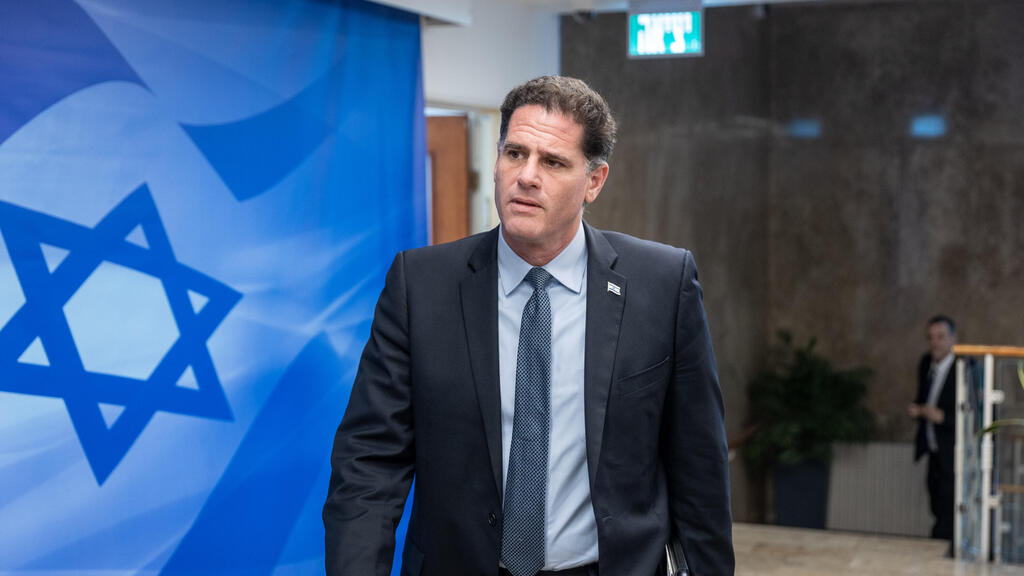Getting your Trinity Audio player ready...
Ron Dermer’s appointment as head of Israel’s negotiating team has caused a “significant slowdown” in hostage talks with Hamas, according to a report published Friday by CNN.
The network cited an unnamed source familiar with the negotiations who said the pace of discussions to secure the release of hostages had declined notably since Dermer replaced Mossad chief David Barnea and Shin Bet head Ronen Bar as the lead Israeli negotiators.
“With Dermer, there’s a significant difference in momentum,” the source said, comparing it to when the process was led by the intelligence chiefs.
“There is a clear shift in [Israeli] priorities,” the source added. “Negotiations are seemingly being politicized from the Israeli team.”
An American advocate for hostage families echoed the concern: “The political considerations of the Israeli team led by Dermer is not having a positive impact. The families understand that Dermer is a big problem to getting their loved ones.”
An Israeli official rejected the criticism, saying progress should be judged by outcomes, not process: “Negotiations need to be judged by results, not process. To reach a deal, you need someone who actually represents the will of the government that will authorize said deal, not ‘dissent,’ which only served to undermine negotiations.”
2 View gallery


Benjamin Netanyahu former Shin Bet chief Ronen Bar
(Photo: Yair Sagi, Amir LevyGetty Images, Reuters/ Ronen Zvulun)
The fragile ceasefire that had begun as President Donald Trump took office collapsed last month when Israel resumed military operations. U.S. and Israeli officials blamed Hamas for rejecting a proposed extension, a claim Hamas denied. Even before that, signs indicated Israel intended to resume the war once the initial phase—during which 38 Israeli and Thai hostages were released—ended.
Critics have accused Prime Minister Benjamin Netanyahu of prioritizing the destruction of Hamas over the release of hostages, in part to preserve support from his right-wing coalition. By placing Dermer—Israel’s strategic affairs minister—in charge of the talks, Netanyahu has managed the coalition’s expectations more directly while sidelining dissenting voices in the security establishment.
Get the Ynetnews app on your smartphone: Google Play: https://bit.ly/4eJ37pE | Apple App Store: https://bit.ly/3ZL7iNv
During last year’s negotiations that ultimately yielded the January ceasefire, Israeli intelligence leaders reportedly clashed with Netanyahu over his stalling tactics and shifting goals, which they believed were politically motivated. With Dermer now in charge, those disagreements have largely vanished from public and internal discourse.
While visiting the U.S. this week, Netanyahu denied that freeing hostages wasn’t a top priority. “The president looked at me and told the journalists who were present: ‘This man is working constantly to free the hostages,’” he said. “I do care, and I am doing it, and we will be successful.”
Still, frustrations remain. The Hostages and Missing Families Forum recently accused Dermer of leaving them “in complete darkness.” In a letter, they said, “When you were appointed... we were promised a breakthrough. In reality, more than a month has passed and there is no progress in sight.”


